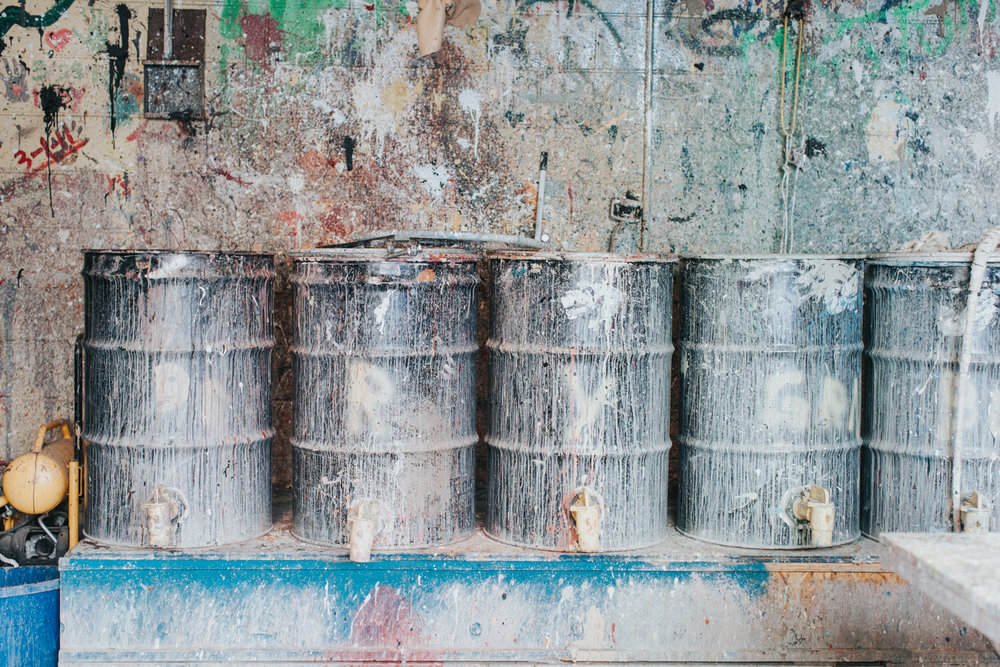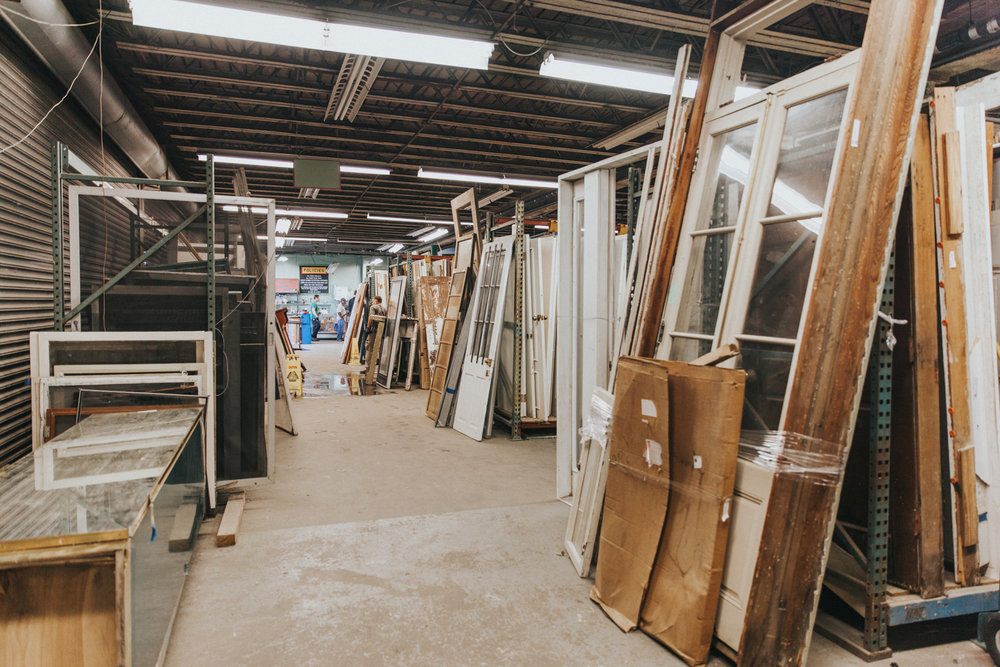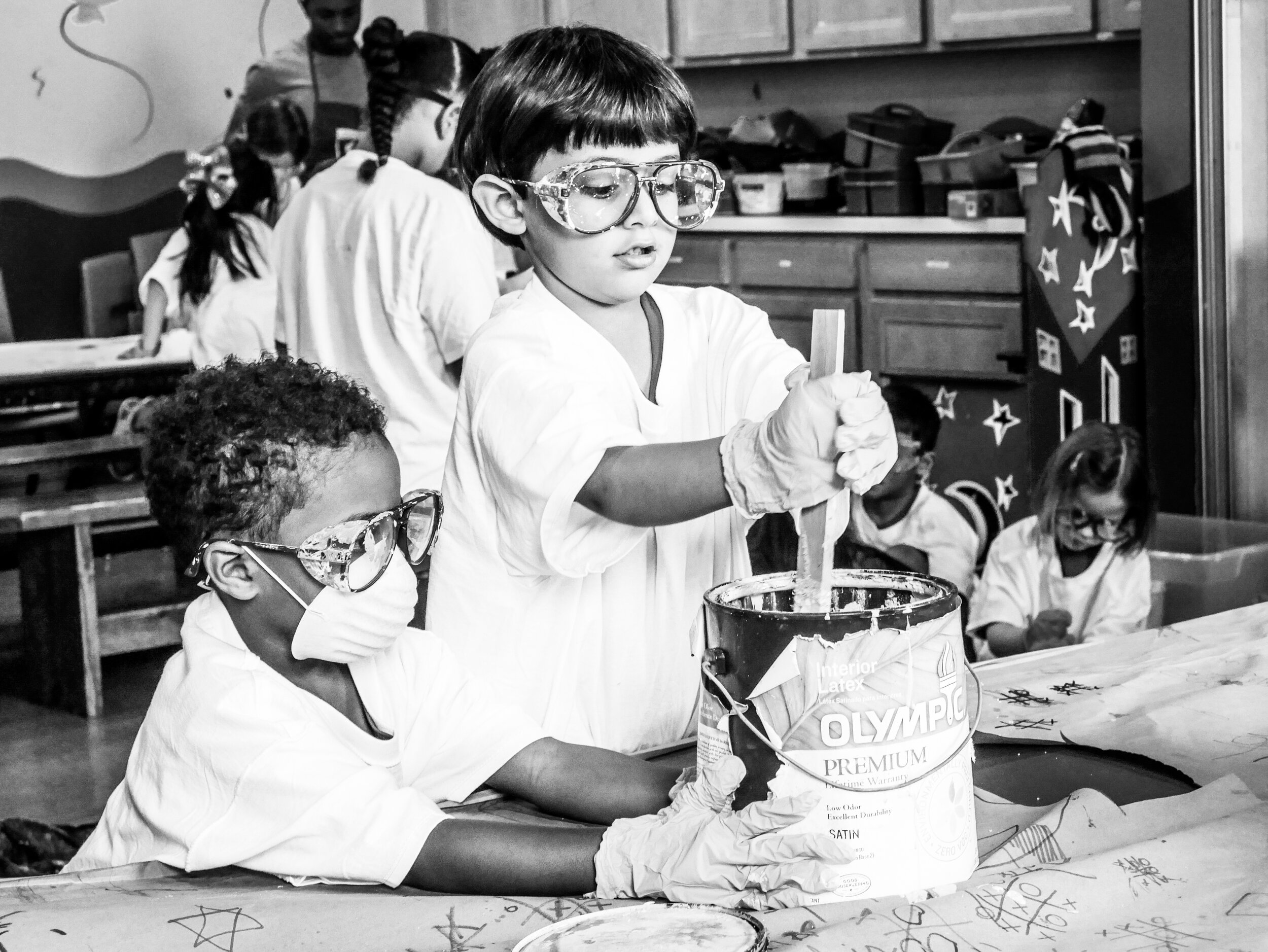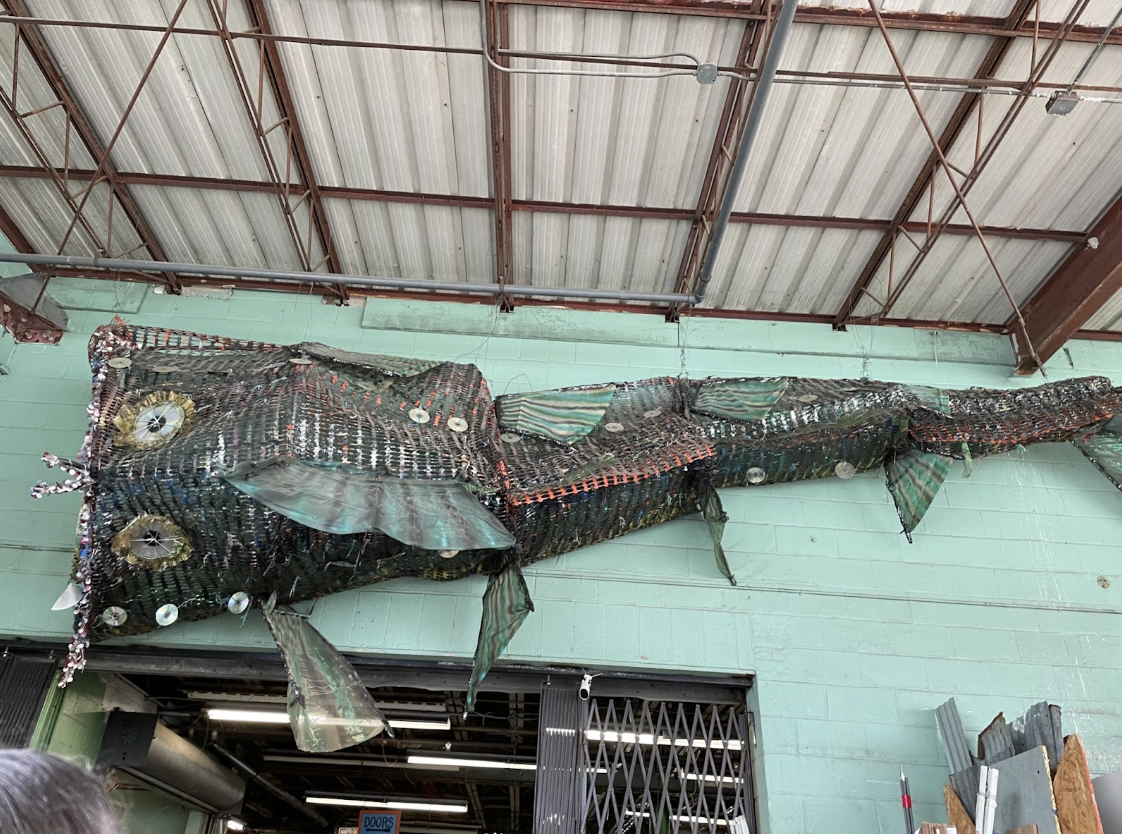By: Sarah Snyder, Emily Cohen, Dominique Prato, and Sammy Steinwolf
Interview with Jasmine Brown, Executive Director of The Green Project:
As the threat of Climate Change increases every year, environmental education is as important as ever. Today’s youth must understand the necessity of keeping the earth clean and the ways they can help. The Green Project, located in New Orleans, is just one example of an organization that has found new and innovative ways to reduce waste while also promoting environmental education. Paint recycling, a salvage store, and their M.E.S.S lab program all play key roles in their sustainability efforts.

Importance of Environmental Education in NOLA
It is always vital to instill education in individuals at a young age when their minds are most malleable, especially when it comes to such a multifaceted concept as environmentalism. Environmental education focuses on health, climate change and its dangers, and sustainability while using an approach that provides meaningful action plans. Action plans are a key aspect in providing a proper environmental education: learning about environmental dispositions can be jarring, which is why the well-being of students must be prioritized so that they are better engaged with the curriculum.
As one of the largest ports in the world, New Orleans is susceptible to environmental disasters that can uproot the lives of people throughout the city. For K-12 student in New Orleans, environmental education provides an opportunity to mend the relationship between themself and the environment; after such devastating losses from disasters like Hurricane Katrina. Environmental education can also be a call to action and instill a sense of responsibility, which in turn allows one to better understand and connect with the environment that they live in.
In an interview with the Green Project’s Executive Director, Jasmine Brown, Ms. Brown shared a personal story about her experience with environmental dispositions, and how they affected the health of her family as well as herself. Ms. Brown stresses the importance of providing young individuals with an education that they might usually have the opportunity to get in schools, or at home; the mission of the Green Project is to fill these knowledge gaps for students so that they have access to tools that promote an analytical understanding of environmental sustainability on both a local and global scale.
What Is The Green Project?
Since their launch in 1994 sustainability has been at the heart of the Green Project’s mission. They are a non-profit organization that collects and resells used building materials, executes an extensive paint recycling program, and offers K-12 environmental education programs. The former two initiatives divert massive amounts of waste from New Orleans landfills and waterways, and the latter does the job of breeding environmentally conscious minds: something just as essential to a solution to our climate crisis.
The Green Project is the saving grace for a shocking 40,000 gallons of paint and 2 million pounds of materials each year. Not only does the reuse of these materials help the abiotic environment, but it also directly impacts the lives of their customers. As explained by Brown, “A lot of people in the community are still rebuilding from…any kind of natural disaster that usually happens in this city” and since the “materials we receive are architectural salvage materials…people can come here and buy them for half the price that they would pay for them at another store”.
As for their environmental education programs, they are completely free and self-sustaining. They are intended to equip students with the knowledge and tools to behave environmentally sustainably. Brown emphasizes the importance of exposing students to the information “that schools may not be teaching them, but also that they may not be learning at home”. Students are not just lectured at, they are provided with an immersive pro-environmental experience that actively reinforces, for each student, the power they hold to support the environment with their actions.

The M.E.S.S Lab
The M.E.S.S Lab is an important aspect of The Green Project’s environmental education program. Its mission is to inform students about environmental stewardship and civic engagement using paint recycling. It stands for Math, English, Social Studies, and Science. This allows students with a variety of interests to appreciate the program and learn more about waste and recycling. Within the M.E.S.S Lab, students are given cans of paint colors that were previously mixed together by old, donated, paint and get the opportunity to create their own original color. After this step, they fill out a form where they create names for the paint and answer questions using persuasive writing techniques. These paints are later placed in the salvage shop and made available for purchase by customers. Students who participate in this lab also go on a scavenger hunt to learn about landfill diversion, the city’s local waste stream, and facilitate the whole paint recycling process. 
Upcycled Art
Another important aspect of The Green Project’s environmental education program is the art located around the warehouse. There are many sculptures made with recycled items like bottles, nets, and plastic. In a case study by Iosif Fragkoulis and Marios Koutsoukos, two pieces of upcycled art are highlighted: “Sandworm” and “Earth Tear”. They are made from recycled materials that some may call trash and facilitate active engagement through analysis of their meaning and form, effectively conveying the importance of creative reuse and environmentalism. These two examples share similar qualities to the art pieces featured around The Green Project’s warehouse, so the same logic can be applied to them. 
Whether you are embarking on a home improvement/repair project, an artist in search of unique materials or inspiration, or an educator looking for a creative way to supplement your students’ environmental education, pay a visit to 2831 Marais St, New Orleans, The Green Project!
 NOLAbeings
Multimedia artist Claire Bangser created NOLAbeings as a portrait-based story project that marries...
NOLAbeings
Multimedia artist Claire Bangser created NOLAbeings as a portrait-based story project that marries...
 Data corner: Adobe Suite (create a PDF, social media graphic, presentation, edit a photo and video
Data corner is where you go to work with analytics and top tech skills. It takes on everything from PERL and SQL to Canva and Sprout Social.
Data corner: Adobe Suite (create a PDF, social media graphic, presentation, edit a photo and video
Data corner is where you go to work with analytics and top tech skills. It takes on everything from PERL and SQL to Canva and Sprout Social.
